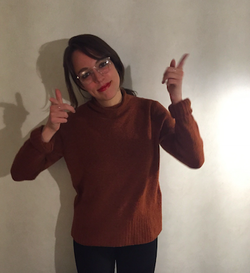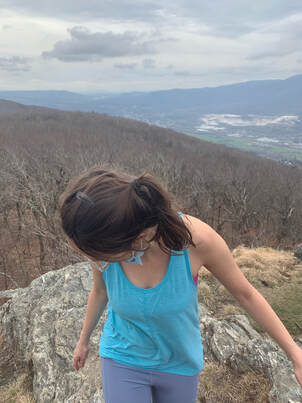
Hi, I'm Becca. I am the non-fiction book critic of the Washington Post, an editor at The Point, and a contributing editor at The Boston Review . My essay collection, All Things Are Too Small, was published Metropolitan Books in the US and Virago in the UK in April 2024. The New York Times called it "splendidly immodest" and "exhilarating" and The Guardian called it "bracing and brilliant." It was a New York Times editors' pick and a New Yorker weekly recommendation. Finally, I am also a PhD candidate (on indefinite hiatus) in philosophy at Harvard, but i remain perhaps delusionally convinced that someday I will finish my dissertation. These days I live in Washington, DC, with this person, whom I love. Here you can find all of my Washington Post pieces, which will come out each week, generally speaking.
To keep up with my writing/rantings, subscribe to my substack here. As a writer: I have contributed essays, book reviews, and the occasional art review to publications like The TLS, The Nation, The New York Times Book Review, The New Yorker, The Atlantic, Liberties, Bookforum, Art in America, The Yale Review, The Baffler, and more. These days, I write mostly for the Washington Post about non-fiction, but occasionally I write essays on fiction and whatever else for other venues. I am the winner of the first annual Robert B. Silvers Prize for Literary Criticism (see more here) and the 2023 Nona Balakian Citation for Excellence in Reviewing (see more here). In 2017, I was a finalist for a National Magazine Award in the essays/criticism category. A few authors I especially love are Joseph Roth, Italo Svevo, Henry James, Henry Green, Heinrich von Kleist, Marie de France, and Norman Rush. My agent is Anna Sproul-Latimer of Neon Literary. As a (lapsed?) philosopher: I am primarily interested in aesthetics (especially aesthetic value and its relationship to other types of value), the philosophy of love and sex, and the history of German philosophy, especially Martin Heidegger, although I have increasingly consuming secondary interests in political philosophy. In "The Good, the Bad, and the Ugly," published in The British Journal of Aesthetics, I defend aestheticism, the view that aesthetic value is sometimes a partial grounds of moral value. I describe aestheticism in more detail in a chapter in the Oxford Handbook of Ethics and Art. If I ever get around to completing it, my dissertation will be about some combination of the following: what it is to be a beautiful person, why evolutionary psychologists are wrong about human beauty, the ethics of exclusionary romantic/sexual/aesthetic preferences, and what role the state should play in ameliorating inequitable distributions of intimate "goods." I hold a first-class MPhil in the history and philosophy of science from the University of Cambridge and a B.A., summa cum laude with high honors, from Dartmouth College, where I studied philosophy & German (and cultivated an enduring distaste for fraternities). I receive many emails asking for advice about graduate school applications. I have answered some frequently asked questions on this page. As I note there, I do not consider myself an expert in how to write a successful graduate school application, and I urge all prospective grad students to consult resources online, as well as supervisors who have served on admissions committees, rather than me! Before the pandemic, I followed Hegel in regarding nature as geistlos, but now, like any good Heideggerian, I am a big fan of hiking. Here I am in the Berkshires, which I love
|
|
Begin, for once, with the ending: the arms at an awful angle, the face blue-lipped above a blot of blood. Only later do we glimpse the woman who corresponds to the corpse. She laughs in a flashback. Or she smiles in the photograph pinned to the board where the police map the murders with thumbtacks, charting tangled speculations with lines of yarn. In light of her death, she comes to life. This is the antiordering typical of the serial killer procedural, a narrative scramble that begins with the answer and ages back toward the question. In the television series Hannibal (NBC, 2013–15), a convicted murderer impales a nurse in prison. He snaps at the officers who come to question him, “I was caught red-handed. There’s no mystery as to who done it. I did it!” Still, the officers insist that they have something to ask. Read more here.
4 Comments
The lives of memoirists must be eventful if their books are to be any good. This is one of the primary hazards of using oneself as material. Calypso, David Sedaris’s most recent collection of stories-cum-essays-cum-reminiscences, grasps at biographical straws. Sedaris writes discursively about middle age, gay marriage and foxes – and he makes obligatory mention of his dead mother’s alcoholism and his sister’s suicide – but his favourite subject is shopping. In one salvo, he buys a beach house for his family. In another, he and his sisters go to Japan to splurge on impressively hideous designer clothing....Read more here.
|
Archives
June 2022
Categories |

 RSS Feed
RSS Feed